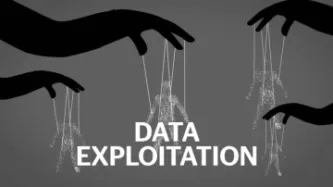Search
Content type: Examples
A former Facebook insider explains to Wired Magazine why it's almost certain that the Trump campaign's skill using the site's internal advertising infrastructure was more important in the 2016 US presidential election than Russia's troll farm was. The first was the ads auction; the second a little-known product called Custom Audience and its accompanying Lookalike Audiences. Like Google's equivalent, Facebook's auction has advertisers bid with an ad, an ideal user specification, and a bid for…
Content type: Examples
After investigation, the UK's privacy regulatory, the Information Commissioner's Office has found that two small sections of the written scripts used by Blue Telecoms, a marketing firm that made calls on behalf of the Conservative Party during the 2017 general election, crossed the line from legitimate market research to unlawful direct marketing. The ICO has issued a warning to the Conservative Party rather than launching a formal regulatory action because, it says, the overall campaign was…
Content type: Examples
Facebook and Twitter have advised Damian Collins, the chair of the UK Parliament's digital, culture, media, and sport committee, that the companies will hand over some information relating to the rearch of Russia-backed posts during the EU referendum. Facebook has already given the US Senate similar information about Russia-backed posts during the 2016 presidential election; this information showed that campaign ads and fake news generated by the Internet Research Agency troll factory in St…
Content type: Examples
Caucuses, which are used in some US states as a method of voting in presidential primaries, rely on voters indicating their support for a particulate candidate by travelling to the caucus location. In a 2016 Marketplace radio interview, Tom Phillips, the CEO of Dstillery, a big data intelligence company, said that his company had collected mobile device IDs at the location for each of the political party causes during the Iowa primaries. Dstillery paired caucus-goers with their online…
Content type: Examples
In what proved to be the first of several years of scandals over the use of personal data in illegal, anti-democratic campaigning, in 2015 the Guardian discovered that Ted Cruz's campaign for the US presidency paid at least $750,000 that year to use tens of millions of profiles of Facebook users gathered without their permission by Cambridge Analytica, owned by London-based Strategic Communications Laboratories. Financially supported by leading Republican donor Robert Mercer, CA amassed these…
Content type: Examples
By 2020, digital ad spending on political campaigns, which was about $22 million in 2008, is projected to reach $3.3 billion. Broadcast audiences in 2016 were about a quarter the size they were in the 1980s, and they are continuing to shrink, while half of US broadcast radio stations are expected to be gone in the next decade. Going with it is the national coherence that came with mass audiences. In 2009, the company Audience partners began deploying voter targeting technology that allowed…
Content type: Examples
In March 2016, a hacker group identifying itself as Anonymous Philippines defaced the website of the Philippine Commission on the Elections (Comelec), leaving a message that accused Comelec of not doing enough to secure the voting machines due to be used in the general election the following month. That same day, LulzSec Piliphinas, a different but related hacker group, posted online a link to a 338GB database it claimed was the entire electoral register of 54.36 million Filipinos. Trend Micro…
Content type: Examples
In 2016, supporters of Ted Cruz and Rand Paul for president were surprised to begin getting emails from the Trump campaign soon after their candidates dropped out of the race for the Republican nomination. In an investigation, CNNMoney found that nearly every failed 2016 presidential candidate sold, rented, or loaned their supporters' email addresses to other candidates, marketers, charities, and private companies. From analysing thousands of emails and Federal Election Commission records,…
Content type: Long Read
In December 2017, Privacy International published an investigation into the use of data and microtargeting during the 2017 Kenyan elections. Cambridge Analytica was one of the companies that featured as part of our investigation.
Due to the recent reporting on Cambridge Analytica and Facebook, we have seen renewed interest in this issue and our investigation. Recently in March of 2018, Channel 4 News featured a report on micro targeting during the 2017 Kenyan Presidential Elections, and the…
Content type: Long Read
The ongoing Facebook and Cambridge Analytica scandal is a wake-up call for UK policy-makers who too often encourage and promote digital industries over the protection people’s personal data. The scandal has shown that the public is concerned by companies’ exploitation of their data. The current lack of transparency into how companies are using people’s data is unacceptable and needs to be addressed.
Reform should not be limited to the behaviour of individual companies. Consumers are confronted…
Content type: News & Analysis
Estos últimos días hemos conocido los detalles de cómo Cambridge Analytica fue capaz de acumular información sobre votantes, a través de una aplicación que recogió datos de más de 50 millones usuarios de Facebook, incluyendo 30 millones de perfiles sicográficos.
Esta es otra historia más de cómo se explotan datos para obtener ventajas políticas. Acá estamos frente a tres historias diferentes:
· Por una parte, partidos políticos y gobiernos continúan intentando acceder a toda la información…
Content type: Long Read
Over the past few days we've all learned details about how Cambridge Analytica was able to amass data on voters through the use of an app that would gather data on approximately 50 million Facebook users, including 30 million psychographic profiles.
This is three stories in one.
Yes, this is another story of data that has been exploited for political advantage, again. Political parties and governments continue to want access to social media intelligence and continue to develop profiles…
Content type: Long Read
The era where we were in control of the data on our own computers has been replaced with devices containing sensors we cannot control, storing data we cannot access, in operating systems we cannot monitor, in environments where our rights are rendered meaningless. Soon the default will shift from us interacting directly with our devices to interacting with devices we have no control over and no knowledge that we are generating data. Below we outline 10 ways in which this exploitation and…













